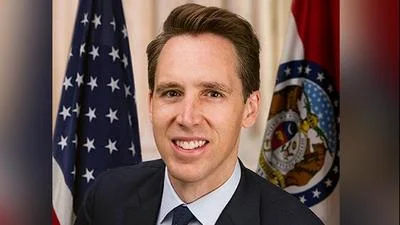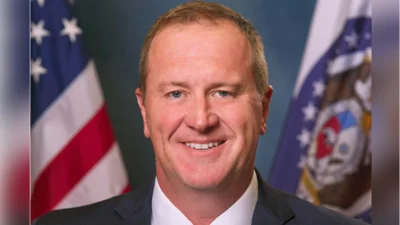U.S. Senator Josh Hawley | Official U.S. Senate headshot
U.S. Senator Josh Hawley | Official U.S. Senate headshot
U.S. Senator Josh Hawley (R-Mo.) has expressed strong support for the House of Representatives' approval of the One Big, Beautiful Bill Act, a reconciliation package that includes what he describes as the largest expansion to date of the Radiation Exposure Compensation Act (RECA). The legislation also allocates an additional $1 billion in funding for Missouri Medicaid providers and recipients.
Senator Hawley first urged Congress to provide compensation for victims of government-caused nuclear radiation on July 13, 2023. After almost two years of discussions and after two previous Senate approvals of RECA expansions in 2023 and 2024, this latest version is now headed to President Trump for signature into law.
"To all the radiation survivors and nuclear veterans across the country: WE DID IT. Today, we have prevailed. Your country thanks you and honors your sacrifice. #MAHA," said Senator Hawley via social media on July 3, 2025.
"HUGE WIN for Missouri – after 5 decades, survivors of nuclear radiation will FINALLY be compensated by the government that poisoned them," Hawley stated in another post.
The expanded RECA provision aims to offer compensation and health care benefits to individuals in St. Louis and St. Charles who developed cancers linked to exposure from Manhattan Project waste. It will also broaden coverage for uranium miners and downwinders in Western states who were affected by radioactive fallout.
The reconciliation bill contains additional measures designed to benefit working families, such as eliminating taxes on overtime pay and tips, as well as increasing the child tax credit.
As part of negotiations between Senate GOP leadership and Senator Hawley, a new $50 billion fund for rural hospitals was included in the legislation. Missouri is expected to receive about $1 billion over five years from this fund to support healthcare providers and Medicaid recipients across the state. The deal also delays any planned reductions in Medicaid services.






 Alerts Sign-up
Alerts Sign-up